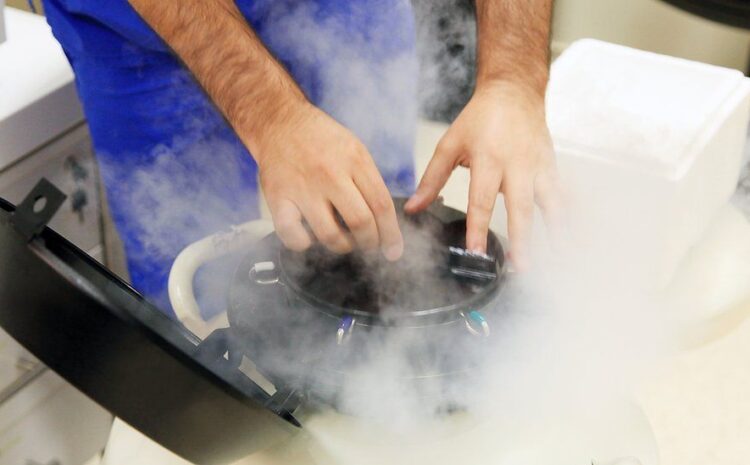
IMAGE SOURCE GETTY IMAGES image caption The storage limit for eggs, sperm and embryos would be increased from 10 years to 55 years under government plans
By Jennifer Meierhans
BBC News
Health Secretary Sajid Javid said the current limit of 10 years was “severely restrictive.”
Modern freezing techniques mean eggs can be stored indefinitely without deterioration, research from the Royal College of Obstetricians has suggested.
The plans need parliamentary approval.
The Department for Health said there would be extra conditions around third party donors and use of a person’s frozen cells after they have died.
Currently, when the 10 years is up, prospective parents must decide whether to undergo fertility treatment or have the cells destroyed.
Mr Javid said: “This new legislation will help turn off the ticking clock in the back of people’s minds.”
He added: “By making these changes, we are going to take a huge step forwards – not just for giving people greater freedom over their fertility, but for equality too.”
He said extending the time limit “protects the ability of all our patients to make reproductive choices for themselves as individuals and couples.”
What is egg, sperm and embryo freezing?
The process involves collecting around 15 eggs through IVF, cooling them quickly then storing them in tanks of liquid nitrogen.
The eggs are then thawed when needed, and those that have survived intact will be injected with sperm.
Sperm samples are usually divided between a number of containers called straws before freezing so they can be used in multiple treatments.
Embryos are frozen during fertility treatment in case the first round is not successful or to try for a sibling.
They can be frozen when they’re just a single cell, at the two to eight cell stage or later in their development.
